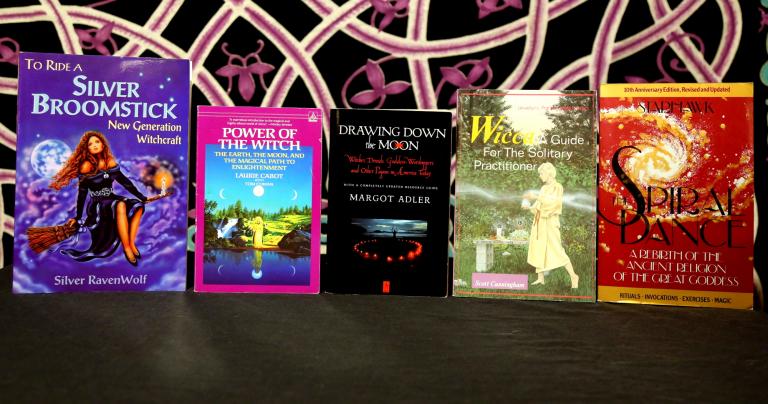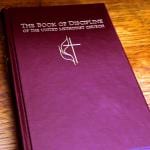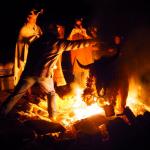Jason Mankey has a new post titled Big Name Pagans, a term he defines as “a title used by a lot of folks to identify people they think have a large profile in the Pagan community.”
I heard that title mentioned fairly early on my Pagan journey, though I don’t remember the context. But once I heard it I used it to mean “the people who write the books and who know a lot more than I do.”
Which they did. I was a beginner and I didn’t know just how much I didn’t know. They were authorities – root word author.
I’ve always been a fast learner… plus I’ve never been one to take somebody else’s word for anything. It wasn’t long before I started developing opinions of my own. But I kept my respect for the people who wrote the books and still knew more than I did.
I put some of those Big Name Pagans on pedestals, and in one case I came to regret that. I still see a few cults of personality – they’re not good things.
Every time the topic of BNPs comes up, someone (usually an older Pagan) says it really stands for “Big Nose Pagan” and refers to Pagans who expected to be treated like celebrities. Maybe so – every community has a few people with an overinflated view of their importance and the Pagan community is no exception.
My observation is that the more someone has tangibly accomplished, the less arrogant they are. I can’t speak for musicians, but I know first-hand that writing a book will humble you. Editors – good editors, anyway – will really humble you. That’s not universally true – my only memorable “big name brush-off” came from someone who had accomplished quite a bit. But it’s true much more than not. People of substance are usually down to earth.
Jason argues that the idea of a Big Name Pagan isn’t really relevant anymore.
When I first began my forays into Witchcraft the only way to get in touch with authors was through writing letters … [BNPs] were remote and distant figures, not my online neighbors.
Not only are most of your favorite authors and Pagan leaders more accessible, they don’t make their living from their Paganism. I’m an engineer. ADF Archdruid Jon Drum is an IT manager. Anglesey Druid Kristoffer Hughes works for Her Majesty’s Coroner doing autopsies and occasionally acts on Welsh language television.
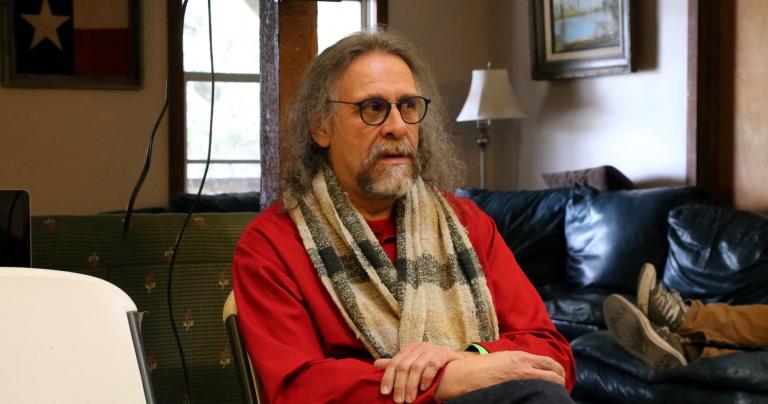
The upside to that is the barriers to entry in public Paganism are far, far lower than they used to be. You can record music with your computer and a few hundred dollars’ worth of gear. You can shoot video on your cell phone and upload it to YouTube.
Anybody can start a blog for free and publicize it with Facebook and Twitter. Jason is always looking for people who can write well and write consistently (the later seems to be much harder to find) for Patheos Pagan. Anne Newkirk Niven is always looking for people to write for Pagan Square and Witches & Pagans. And if your book is just too specialized for Llewellyn or Weiser, e-books and print-on-demand have made self-publishing a viable option.
None of these things are going to make any significant amount of money, and that raises issues of its own, both positive and negative. But if you want a platform, they’re there for the taking.
The number of authors, bloggers, musicians, artists, scholars and other Pagans with a public presence is orders of magnitude larger than it was even 20 years ago. That means the influence of any one person is a lot more diluted than it was in the days when Scott Cunningham ruled the shelves at Barnes & Noble.
Beyond that, the Pagan community is far more fractured than it was during the era of Big Name Pagans. Heathens don’t really care what Wiccans are doing. Ethnic reconstructionists have very different ideas from naturalistic Pagans. I write as a Pagan on a Pagan platform, but my topics and my emphases are quite different from most of the other bloggers here on Patheos.
The era of the Big Name Pagan has passed. Nobody has the kind of name recognition that Raymond Buckland and Starhawk had in the 1980s. But people are still recording songs, writing books, and teaching at conferences. I’ll be one of the presenters at the Sacred Space Conference in Maryland next month – I’m leading three workshops and a ritual.
When I look at the people who’ve filled the space vacated by Big Name Pagans what I see are Practitioner-Leaders. I see people who are doing Paganism first and writing about Paganism second. I spent 12 years as Coordinating Officer of Denton CUUPS and I’m still very active locally. Jason and his wife Ari lead a Gardnerian coven. Laura Tempest Zakroff makes some amazing art. Morgan Daimler is a prolific writer across multiple genres and a without a doubt (at least in my mind) is the most knowledgeable and experienced fairy scholar alive today.
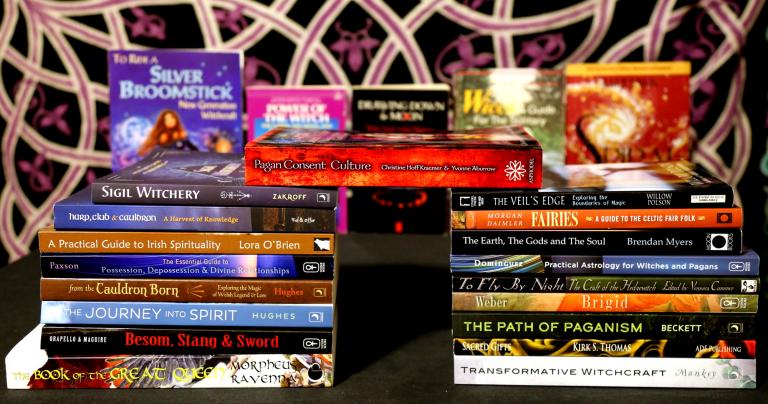
This is not to say that the Big Name Pagans weren’t practicing their crafts – they most definitely were. Raymond Buckland invented a new witchcraft tradition that didn’t require initiation and opened the door for thousands and thousands of solitary practitioners. But they carried an authority that today’s Practitioner-Leaders simply don’t have, and for the most part don’t want.
On the rare occasion I hear (or hear of) someone saying “well, John Beckett said…” I get very uncomfortable. I am most definitely not infallible, and I don’t like being used as an authority. On the other hand, when I hear people talking about Pagan matters and I hear words and lines of thought I recognize as mine, I’m thrilled. Even if they don’t credit me, even if they don’t even realize where those ideas came from. It means they heard what I had to say and it made sense enough to them that they’ve internalized it.
That feels real. That means I’ve done my job as a writer and a teacher.
I see the same perspective from most other Practitioner-Leaders. We don’t do this because we want to be famous. Most of us are introverts – fame isn’t very high on our wish lists. We do it because we love our religion, our craft, our art, and our community, and we want to help them become as strong and vibrant as they can be.
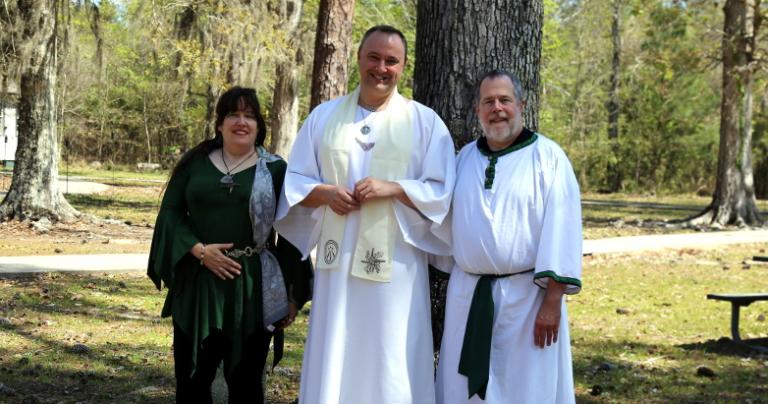
Paganism still has a rather loud anti-authoritarian streak to it, and there are plenty of Pagans who say “we don’t need leaders.” We certainly don’t need authoritarian leaders, but somebody has to make sure the trains run on time. Leadership is first and foremost about service – service to a community and service to a vision. If you don’t have formal leaders, you’ll end up with informal leaders who may do just fine or who may convince everyone that doing things their way is the only way no matter who gets run over in the process.
With Practitioner-Leaders, people understand we have limited scope. Nobody’s coming to me for advice on Wicca or Santeria or Traditional Witchcraft. Now, if you’re looking for help with ecstatic polytheism I may be able to point you in the right direct. And if I can’t, I can probably refer you to another Practitioner-Leader who can.
None of us will ever have the name recognition that Scott Cunningham had. Our focus is far narrower, but because it’s narrower it can also be deeper.
If you want to be a Practitioner-Leader – or more importantly, if you’re called to be one – the barriers to entry are far lower than they used to be. You don’t need to be retired on a civil service pension, like Gerald Gardner was when he started promoting Wicca. You don’t need a book contract. You don’t need charisma. Those things help, but plenty of Practitioner-Leaders do what they do quite well without them.
You just need the ability and willingness to do what you do as deeply as you can, and then teach others to do the same.
The era of the Big Name Pagan is over.
And I’m very happy about that.


